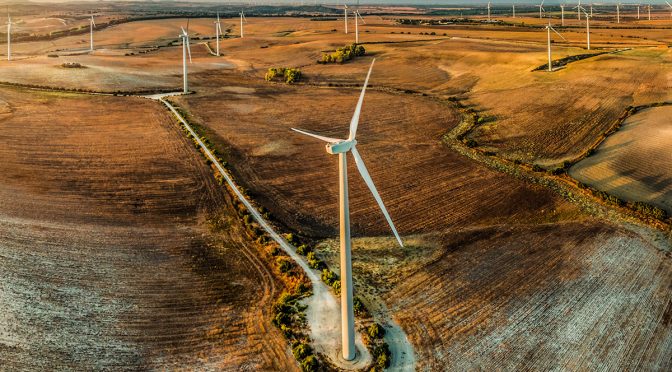Spain auctioned a total of 3 GW of renewable energy capacity in its January 2021 tender. The first tender under the new Spanish auction design resulted in the lowest ever prices for new wind energy in Europe. The lowest wind energy bid was awarded at a price of €20/MWh. The wind bids ranged from €20/MWh to €28.89/MWh.
In its National Energy and Climate Plan (NECP) the Spanish Government pledged to increase Spain’s installed onshore wind energy capacity by 22 GW from today’s 28 GW to 50 GW by 2030. To facilitate this large-scale expansion of onshore wind and to guarantee the necessary revenue stabilisation for investors, the Government decided to change the auction design for renewable energies. Yesterday’s first tender under the new auction design resulted in the lowest ever prices for onshore wind energy in Europe. The wind bids ranged from €20/MWh to €28.89/MWh.
“Spain has delivered the lowest prices ever seen for onshore wind in Europe. The European wind industry continues to reduce costs through innovation, scale and learning effects. And major credit is due also to the Spanish Government here for using Contracts-for-Difference (CfDs) as their new auction model. CfD auctions deliver the lowest prices for renewables because they minimise the financing costs. And they’re cheap for governments, as governments get paid back as well as paying out. So citizens win twice, both as consumers and taxpayers”, says Giles Dickson, WindEurope CEO.
WindEurope has been vocal in promoting the CfD model as the favourable model for revenue stabilisation. With CfDs, wind farms pay back when the market price exceeds the auction price. Governments only pay out when the market price is lower than the auction price. CfDs are therefore cheaper for Governments and consumers than other support schemes and they reduce the financing costs of new wind energy projects.
In the new pay-as-bid auction design, successful bids are awarded 12-year CfDs. Awarded projects have to sell a defined amount of electricity to the market under the CfD contract. Once the defined threshold is reached, they can decide to continue selling their electricity under the CfD up to a set maximum or to go merchant by, for example, signing corporate renewable Power-Purchase-Agreements (PPAs) with industrial off-takers.
WindEurope does not support the idea of bringing wind and solar into direct competition under technology-neutral auctions. The new Spanish auction design only partly reflects these concerns. Yesterday’s 3000 MW tender included three separate pots. The first pot consists of 1000 MW of wind energy capacity. The second pot is made up of 1,000 MW of solar PV. And the third pot of another 1000 MW dedicated to all renewable energy sources combined. Wind energy and solar PV projects are allowed to bid in the technology-specific pots 1 and 2 respectively. But they can also choose to bid in the technology-neutral pot 3. Bids don’t require a building permit and have to be constructed by April 2024 the latest.
The first tender results show that wind energy was awarded a total of 1,000 MW, as the technology-neutral pot went completely to solar PV. No other renewable energy technology could secure volumes from this third pot.
The Spanish Government published an auction schedule for all upcoming auction rounds until 2025. Spain will auction 1,500 GW annually between 2021 and 2025 under the wind-only pot. It is important to note that yesterday’s 3,000 MW tender is a delayed 2020 tender. This means that Spain will hold another auction for at least 1,500 GW of wind energy in 2021.
“Long-term visibility for future auctions is crucial. It gives more planning and investment security to developers. The Governments auction schedule will further increase the attractiveness of the Spanish wind energy market for investors and developers”, says WindEurope CEO Giles Dickson.


